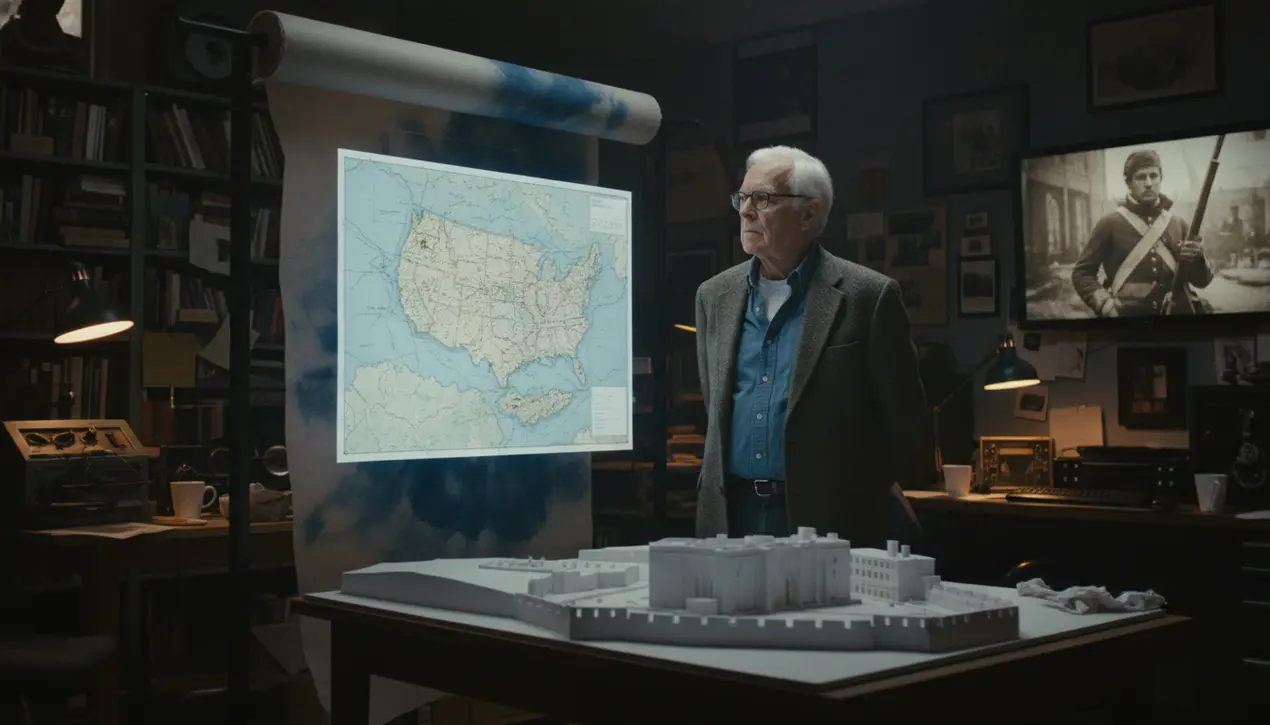
Entertainmenttv & streamingDocumentaries
What Ken Burns learned making 'The American Revolution'
NA
Natalie Cooper
2 hours ago7 min read1 comments
After a decade of meticulous development, legendary documentarian Ken Burns is finally unveiling his monumental six-part series, *The American Revolution*, premiering November 16. In a recent conversation on the *Rapid Response* podcast, Burns peeled back the curtain on the profound lessons unearthed during his deep dive into the nation's fraught origin story, drawing striking parallels between the revolutionary era's bitter divisions and our own politically fractured landscape.He spoke with the reflective cadence of a director who has spent years in the editing room, wrestling with the ghosts of the past, and described the initial spark of inspiration not from a grand plan, but from a moment of pure serendipity—studying a 3D map and noticing the trajectory of British forces moving toward Brooklyn, the site of the revolution's largest and most brutal battle. This epiphany forced a reconsideration of his own artistic boundaries, particularly his usual disdain for reenactments, which he came to see not as cheesy theatrics but as a vital tool for conveying the visceral reality of history: the oppressive heat, the biting cold, the palpable fear in a soldier's heart.It was only years into this painstaking process, Burns admits with a wry chuckle, that he realized the project's completion would serendipitously align with the 250th anniversary of Lexington and Concord, a happy accident that others now mistake for strategic genius. He expresses a palpable concern that the upcoming semiquincentennial celebrations risk superficializing a conflict already encrusted with what he calls 'the barnacles of sentimentality and nostalgia,' emphasizing that this was a long, six-and-a-half-year war of extraordinary violence, where death came from cannonballs decapitating soldiers and bayonets gutting men on muddy fields.Yet, within this brutality, Burns finds a remarkable cast of deeply flawed characters and a resonant narrative for modern audiences wringing their hands over contemporary political divides. 'We were really divided back then,' he asserts, suggesting that a clear-eyed reinvestment in this origin story can help us discern what is fundamentally real from what is artificially constructed in our current national discourse.When the conversation turns to the other dominant cultural force narrating this period, Lin-Manuel Miranda's *Hamilton*, Burns offers nothing but effusive praise, calling it 'the greatest cultural event of this new millennium. ' He recounts the experience of his teenage daughter and granddaughter, who can sing the entire two-and-a-half-hour score, and in doing so, have internalized complex political tensions between federalist and states' rights models.He imagines history teachers lying down and 'thanking God for Lin-Manuel Miranda' for making this history vibrantly alive for a new generation. This admiration, however, highlights the central tension in Burns's own craft.For business leaders and documentarians alike, he insists the responsibility is 'strict accuracy. ' He draws a clear line between his work and Miranda's, placing the Broadway sensation in the venerable tradition of William Shakespeare, who conflated characters and moved countries in service of a higher poetic truth.'But I can’t do that,' Burns states unequivocally. 'I will sacrifice the art for the correct story.' This commitment to factual integrity makes his process 'super complicated,' yet he finds that the struggle to fit 'the round peg of the truth into the square hole of art' can, when successfully negotiated, yield a result as powerful as any fiction. In an age often described as 'post-truth,' Burns is defiant.He challenges the notion directly, asking listeners, 'Are you post-truth? I’m not. ' He argues that the fundamentals of truth are as essential to running a business or building an airplane as they are to crafting a documentary; one and one must always equal two.The modern danger, he concedes, is the internet's sheer scale, allowing a lie to circumnavigate the globe before the truth has its boots on. To illustrate his nuanced approach to historical truth, he turns to the figure of George Washington, a man he portrays not as a marble statue but as a deeply human, rash leader who made catastrophic battlefield errors, exposing his flanks at Long Island and Brandywine.Yet, it was this same man who, on at least three documented occasions, rode directly into the line of fire, risking the entire revolution on his personal survival. Burns, quoting historian Annette Gordon-Reed, notes that Washington was 'the only person that held us together.' His heroism, therefore, was not born of perfection but of a profound 'negotiation within yourself between your strengths and your weaknesses. ' This complex, truthful portrait is what Burns seeks to deliver—a story that acknowledges human fallibility while celebrating the gritty, imperfect triumph that forged a nation, reminding us that the struggle for truth is the most enduring revolution of all.
#Ken Burns
#The American Revolution
#documentary
#history
#featured
#storytelling
#truth
#Hamilton
Stay Informed. Act Smarter.
Get weekly highlights, major headlines, and expert insights — then put your knowledge to work in our live prediction markets.
Related News
Comments
Loading comments...
© 2025 Outpoll Service LTD. All rights reserved.